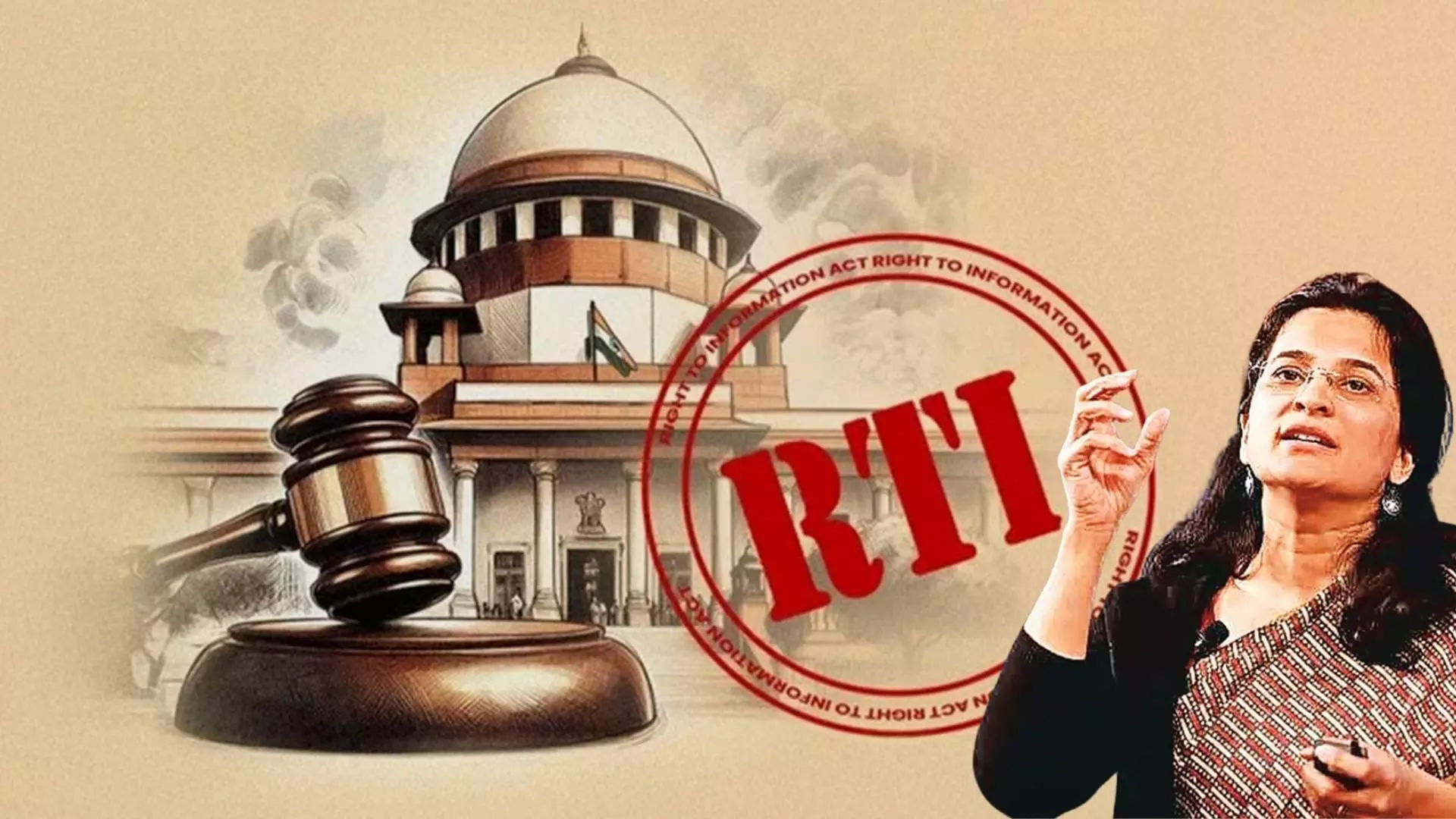
DPDP law weakens transparency, threatens journalists: RTI activist
Anjali Bhardwaj explains how amendments to RTI under the DPDP Act could block access to critical public information

Right to Information (RTI) activist Anjali Bhardwaj, in an interview to The Federal, spoke about growing concerns over the alleged weakening of the RTI Act following the introduction of the Digital Personal Data Protection (DPDP) Act. She highlighted how the new law could limit public access to critical information and undermine accountability.
What are your concerns about the RTI Act being weakened under the DPDP law?
The Right to Information Act was introduced nationally in 2005, and this year marks its 20th anniversary. It has been one of the most empowering pieces of legislation for common people, allowing them to ask questions, obtain information from the government, and hold authorities accountable.
Also read: 20 years of the RTI law: How a marquee legislation has been weakened and diluted
However, in August 2023, the data protection law amended the RTI Act, and this has weakened it significantly. Section 44.3 of the DPDP Act exempts all “personal information” from disclosure under RTI. For example, if someone asks for the name of a contractor involved in corruption, they can be told it is personal information. Similarly, the names of government employees, ministers, or their family members allegedly engaged in wrongdoing cannot be disclosed.
How does this affect electoral transparency and voter data?
Even voter rolls, which are crucial for detecting fake voters or wrongful deletions, could become inaccessible. Once the DPDP Act is operational, the Election Commission may refuse to make such information public, citing compliance with the law. This will make it difficult to detect or expose corruption and electoral fraud.
Also read: RTI activists in Gujarat fear bans, FIRs, getting bumped off by mafia
Is the law operational yet, and what impact will it have once it is?
The law is not fully implemented yet because the rules have not been notified. However, draft rules have been circulated, and once notified, the law will become operational. It designates anyone who collects or publishes personal information as a “data fiduciary”. Complaints against data fiduciaries are adjudicated by a government-controlled board, which can impose penalties up to Rs 250 crore, doubling to Rs 500 crore in some cases.
Will journalists be affected by this law?
Yes, unfortunately. Unlike other global data protection laws, the DPDP Act does not exempt journalists. Any journalist publishing personal data without consent risks severe penalties. This means that the information exposing corruption involving senior officials or ministers cannot be published without their permission, effectively curbing investigative journalism.
Also read: RTI losing its sting as radical piece of legislation gets blunted
How does this law compare with international standards?
Most robust data protection laws, such as the European GDPR, provide exemptions for journalists. Only countries such as Russia, Turkey, or North Korea have draconian laws comparable to India’s DPDP Act, which is a serious threat to press freedom and democratic accountability.
What does this mean for the future of RTI in India?
We have seen repeated attacks on the RTI Act over the last seven to eight years. Citizens who question the government or use RTI are being targeted, labelled anti-national, and even subjected to false cases. More than 100 RTI activists have been murdered for exposing corruption.
Also read: ‘Why hesitation in sharing voter numbers?’ RTI activist questions EC
Despite these challenges, around 60 lakh people use the RTI Act every year to hold governments accountable. The new amendments, however, will restrict access to personal information that is critical for exposing wrongdoing.
For instance, scholarships meant for marginalised communities often go to ineligible recipients. Citizens file RTI requests to access the names of recipients and ensure rightful beneficiaries receive support. Similarly, RTI requests help citizens obtain ration cards, pensions, or other fundamental rights and hold officials accountable. Without access to names and details, accountability disappears, rendering the RTI Act largely ineffective under the DPDP framework.
(The content above has been transcribed using a fine-tuned AI model. To ensure accuracy, quality, and editorial integrity, we employ a Human-In-The-Loop (HITL) process. While AI assists in creating the initial draft, our experienced editorial team carefully reviews, edits, and refines the content before publication. At The Federal, we combine the efficiency of AI with the expertise of human editors to deliver reliable and insightful journalism.)

